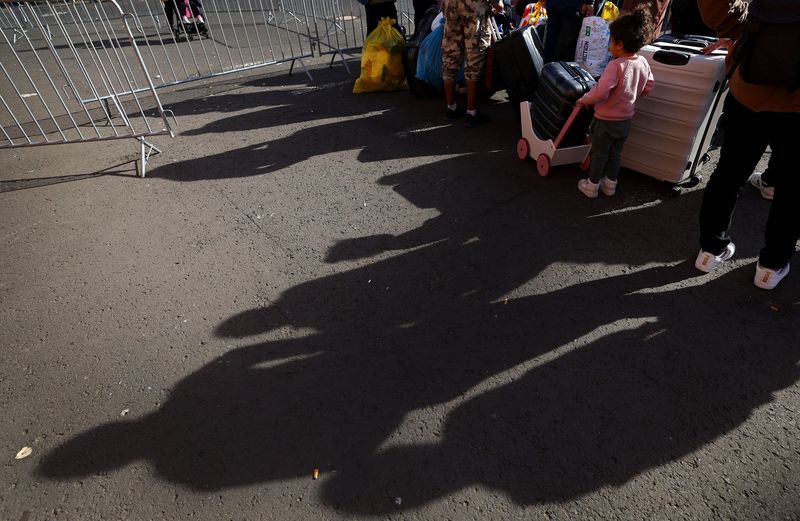BERLIN (Reuters) -Germany wants to make it simpler and faster to deport migrants, particularly those with a criminal background, by cutting notification periods and making searches by authorities easier, according to an Interior Ministry statement on Wednesday.
Interior Minister Nancy Faeser presented a draft bill that she said would improve the possibility to deport migrants without a right to stay in a large number of cases and make it legally possible to expel criminals more quickly than before.
"Anyone who does not have the right to stay in Germany must leave our country," Faeser said in the statement.
Politicians in Germany, once known for its open-door policy in 2015, have begun looking for ways to curb irregular migration as a way to win over voters ahead of elections next year and as the number of migrants has soared, with a 78% increase in first-time asylum requests in the first seven months of this year.
Chancellor Olaf Scholz said at an event of his SPD party late on Wednesday in Berlin that "far too many" migrants were currently coming to Germany.
"This is a matter where the state has to show that it has things under control" and reduce the number of people coming in, he said.
Under the bill, people in prison would no longer be given notice of their deportation, and detention times for people pending deportation would be extended to 28 days from 10. The deportation of people who have been sentenced to at least one year in prison would become much easier.
It would also become possible to search homes for data devices and documents, especially to clarify a person's identity, as well as to enter additional spaces in shared accommodations, according to the bill.
The migration draft law, which has already been discussed extensively with local authorities and German states, is due to be passed by the cabinet shortly, according to the statement.
Last month, Germany introduced checks on borders with its EU peers, saying they are needed to crack down on people smugglers amid irregular arrivals increasing again.
Other central and eastern EU countries have also put up border controls inside what is normally a zone of open travel.
Migration, a contentious issue, has figured as a key issue in elections in European states, as the bloc is carving out a new migration pact that will overhaul rules for handling irregular arrivals.
Poland and Hungary blockeda symbolic EU statement about migration in a summit in Spain last week, where out of the EU's 27 member countries, 22 agreed on how to handle irregular immigration at times of exceptionally high arrivals.
Under the deal, countries such as Italy that receive many Mediterranean arrivals could speed up asylum procedures and ask for swift help from EU peers, including financial aid and relocations.
Italy and Spain have voiced concern over irregular immigration increasing this year to their islands, while Greek waters in June were the site of Europe's deadliest shipwreck in years.

While Poland and Hungary cannot block the new migration pact and their opposition was largely symbolic, their harsh criticism raises questions about how effectively the union can implement a deal.
The EU has tightened its external borders and asylum laws since more than a million people - mostly fleeing the war in Syria - arrived across the Mediterranean in 2015.